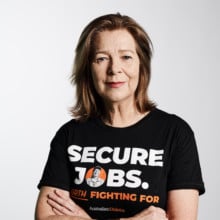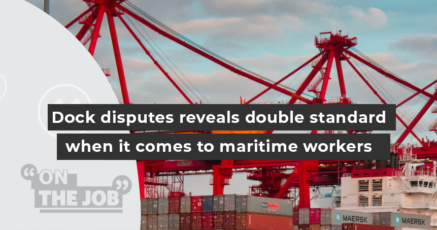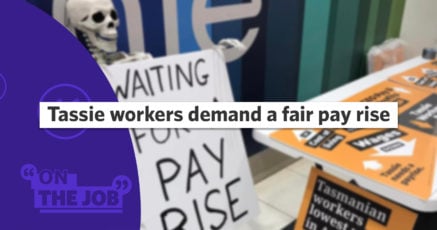As springtime starts to unfurl across much of Australia, weary workers and their families are just beginning to feel that life is returning to something resembling normal.
Hazy memories of pre-pandemic days are surfacing, with bustling city streets, cafes and restaurants buzzing with those lucky enough to be able to afford to eat out, and people going about their business without masks or social distancing rules governing their every move.
In some ways, it feels like the COVID-19 pandemic is over. But it isn’t.
The grim choice for workers
While the need to isolate if you test positive for COVID-19 comes to an end on October 14, that doesn’t mean you can’t or won’t get sick.
And while the pandemic disaster leave payment will remain in place for those workers in critical and emergency response roles, millions of other workers now face the choice of going to work sick, or missing out on pay.
With Australia’s economy ravaged by shocking cost-of-living, it’s a grim choice workers face.
For many workers – and frontline workers in particular – the threat of the pandemic still hovers close. With so many interactions with the general public, those workers remain at greater risk of contracting COVID-19 even as the prevalence of the disease recedes in the wider community.
The pandemic has shattered the myth that the excessive casualisation of Australia’s workforce is all about ‘choice’ or innovation to the benefit of workers.
‘Flexibility’ is the favourite catch phrase of multi-millionaire CEOs when it comes to their obsession with insecure work models. Keeping their workers in casual roles or on rolling contracts frees them from their responsibility to provide entitlements like holiday pay, sick pay and superannuation for their workers.
With some of the largest and most powerful companies in the world pushing to make insecure work the norm, the erosion of paid sick leave entitlements for millions of workers in precarious employment remains a huge problem.
Your health and safety come first
The National Cabinet has made the welcome decision to continue providing support payments for those frontline workers that are still required to isolate in the event they test positive to COVID-19.
Paid pandemic leave was a result of union members coming together and making their voices heard in a time of crisis.
It was these workers who campaigned for and won paid pandemic leave across thousands of unionised workplaces in Australia.
According to Australian Council of Trade Unions President Michele O’Neil, unions will continue to campaign to have paid leave for workers so they can stay at home if they’re COVID positive.
“Isolation payments must remain in place for all frontline workers who continue to have COVID isolation requirements…Without them, workers in healthcare settings could spread the disease to our most vulnerable,” O’Neil said.
O’Neil is in no doubt that the prevalence of insecure work remains a genuine health hazard for far too many Australian workers.
The pandemic has highlighted that Australia’s workforce has a problem with insecure work with tens of thousands of workers having no sick leave. The Albanese Government must look to change our workplace laws to reduce the number of workers without leave and consider if current leave arrangements for casuals are appropriate.
Michele O’Neil
ACTU President

Workers shouldn’t have to choose between putting food on the table and isolating while they are sick with a highly transmissible disease,” O’Neil said.
As we head towards summer and all of the demands of the holiday period, the workers walking the tightrope of insecure work and possible exposure to COVID-19 are left in a teetering position.
Facing added financial pressure to keep working, they will likely find themselves forced into a position where they must prioritise turning up for work over their health. That has implications for them, their work mates, and the public they interact with.
Michele O’Neil is adamant those workers won’t be forgotten.
“Unions will continue to campaign in unionised workplaces for employers to provide paid leave for workers can stay home and isolate if they’re COVID positive.”
Cover image credit: Kelly Sikkema on Unsplash













SHARE:
End of pandemic pay won’t cure the insecure work crisis